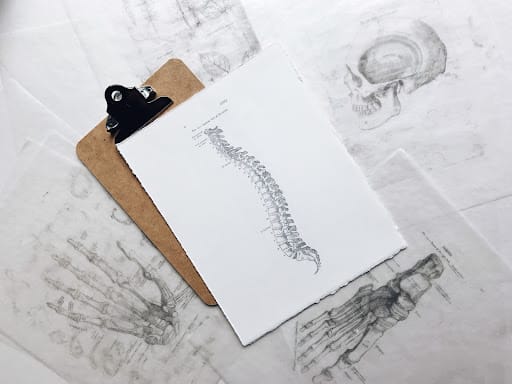Spinal cord injuries can be life-altering, impacting a person’s mobility, independence, and overall quality of life. It is important to be aware of the common causes of these injuries in order to take necessary precautions and promote safety. In this article, we will explore the various factors that can lead to spinal cord injuries, providing insights into their effects and the importance of prevention.
The Four Types of Spinal Cord Injuries
Spinal cord injuries are typically categorized into four types, each varying in severity and impact. These classifications include:
Incomplete Spinal Cord Injuries
In this type, the spinal cord is partially damaged, resulting in a range of sensory and motor function loss. The degree of impairment varies based on the location and severity of the injury. Individuals with incomplete spinal cord injuries may experience partial paralysis, loss of sensation, or difficulty with coordination.
Complete Spinal Cord Injuries
Complete spinal cord injuries occur when the spinal cord is entirely severed or damaged, leading to a total loss of sensory and motor function below the level of injury. This type of injury often results in complete paralysis below the affected area.
Tetraplegia or Quadriplegia
Tetraplegia refers to the loss of function in all four limbs and the torso due to an injury in the cervical region of the spinal cord. Individuals with tetraplegia often experience paralysis and loss of sensation in their arms, legs, and trunk. This type of injury can significantly impact daily activities and necessitate extensive rehabilitation.
Paraplegia
Paraplegia occurs when the injury affects the thoracic, lumbar, or sacral region of the spinal cord, leading to paralysis in the lower extremities. Individuals with paraplegia may retain upper body function but will experience impairment in their legs and lower body. Adaptive aids and assistive devices are often necessary to aid mobility and independence.
Understanding the different types of spinal cord injuries is crucial to comprehend the potential consequences and implications for individuals affected by these injuries.
Common Causes of Spinal Cord Injuries
Spinal cord injuries can result from various incidents and accidents. While some may be unavoidable, many are preventable. Let’s explore the common causes and shed light on the importance of taking precautions.
Motor Vehicle Accidents
Motor vehicle accidents are one of the leading causes of spinal cord injuries. The force and impact involved in collisions can cause the spine to twist, compress, or fracture, leading to severe damage to the spinal cord. Drivers, passengers, pedestrians, and cyclists are all susceptible to these injuries. Wearing seat belts, following traffic rules, and avoiding distracted driving are essential preventive measures.
Falls
Falls are another significant cause of spinal cord injuries, especially among older adults. Slippery floors, uneven surfaces, inadequate lighting, and improper safety measures can contribute to falls. It is crucial to maintain a safe environment, install handrails on staircases, use non-slip mats, and practice caution when moving on elevated surfaces.
Sports and Recreational Activities
Engaging in sports and recreational activities can be exhilarating, but they also pose risks for spinal cord injuries. High-impact sports such as football, rugby, gymnastics, and snowboarding carry a higher chance of injury. Adhering to safety guidelines, wearing protective gear, and receiving proper training and supervision are vital for minimizing the risk of spinal cord injuries during these activities.
Acts of Violence
Unfortunately, acts of violence, including assault, gunshots, and knife wounds, can result in severe spinal cord injuries. These incidents often have life-altering consequences and require immediate medical attention. Promoting non-violence, ensuring personal safety, and raising awareness about the repercussions of violent behavior can help prevent such injuries.
Spinal Cord Injury Rehab and Treatment
Rehabilitation and treatment play a crucial role in the recovery and improvement of individuals with spinal cord injuries. While each case is unique, a comprehensive rehabilitation program generally includes:
Physical Therapy
Physical therapy aims to improve strength, flexibility, and mobility. Therapists guide individuals through exercises and techniques designed to maximize their functional abilities.
Occupational Therapy
Occupational therapy focuses on adapting daily activities to enhance independence. Therapists help individuals learn new techniques, use assistive devices, and make modifications to their environment to optimize their daily routines.
Speech Therapy
For individuals with spinal cord injuries that impact speech and swallowing functions, speech therapy can help regain and strengthen these abilities. Speech therapists provide exercises and techniques to improve communication and swallowing skills.
Psychological Support
Spinal cord injuries often have significant psychological and emotional impacts. Counseling, therapy, and support groups can help individuals and their families cope with the emotional challenges and adjust to the new circumstances.
Medical Interventions
Depending on the severity of the injury, surgery may be necessary to stabilize the spine, relieve pressure on the spinal cord, or repair fractures. Medications and specialized treatments may also be prescribed to manage pain, prevent complications, and promote healing.

Making a Personal Injury Claim
When a spinal cord injury occurs as a result of someone else’s negligence or wrongdoing, it may be possible to pursue a personal injury claim. Seeking compensation through a legal process can help cover medical expenses, rehabilitation costs, lost wages, and other damages. Here are some key points to consider when making a personal injury claim for a spinal cord injury:
Consultation with National Claims
It is advisable to seek the guidance of the experienced claims specialist team at National Claims, who specialise in personal injury cases. We can assess the circumstances, gather evidence, and guide you through the claims process.
Establishing Liability
To succeed in a personal injury claim, it is essential to establish that another party was at fault for the accident or incident that led to the spinal cord injury. This requires gathering evidence, witness testimonies, medical records, and other supporting documentation.
Quantifying Damages
A thorough evaluation of the damages incurred as a result of the spinal cord injury is necessary. This includes medical expenses, ongoing rehabilitation costs, lost income, diminished earning capacity, pain and suffering, and emotional distress. Working closely with medical professionals, rehabilitation specialists, and financial experts can help accurately quantify these damages.
Conclusion
Spinal cord injuries can have a profound impact on individuals, affecting their physical abilities, independence, and overall well-being. By understanding the common causes of spinal cord injuries, we can take proactive steps to prevent these incidents from occurring. Whether it’s practicing safe driving habits, maintaining a hazard-free environment, using appropriate safety measures during sports and recreational activities, or promoting non-violence, each one of us can contribute to reducing the incidence of spinal cord injuries.
For those already affected by spinal cord injuries, rehabilitation and treatment programs play a vital role in enhancing their functional abilities and quality of life. By undergoing physical therapy, occupational therapy, speech therapy, and receiving psychological support, individuals can navigate the challenges and adapt to their new circumstances.
In situations where spinal cord injuries are the result of someone else’s negligence or misconduct, pursuing a personal injury claim can help alleviate some of the financial burdens and provide necessary resources for recovery. Consulting with National Claims can guide you through the legal process and ensure that your rights are protected.
Ultimately, by raising awareness, promoting safety, and providing support to those affected, we can work towards a society that strives for the prevention of spinal cord injuries and offers comprehensive care and assistance to those who have experienced them.
Start your claim by contacting us today and to find out more about how we deal with personal injury claims.
Click below to see why we are one of the most trusted claims management companies in the UK.

We’re proud of our excellent customer reviews
We thrive on delivering exceptional service and ensuring our clients’ satisfaction. Don’t just take our word for it. Check out some of our independent reviews to see what our clients have to say.
Excellent

This firm is excellent, they sorted out my car pay out and injury claim very fast, they always communicate with you all the time.

My accident case was dealt with confidence and with great result of the outcome, especially James kept me informed all the time.

I was very impressed at the way my inquiry was treated. I was listened to attentively and everything I needed to know was explained to me.






